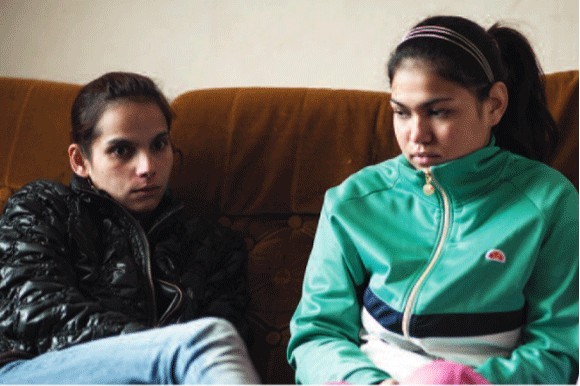The Way Out by Petr Václav received seven Czech Lions and the Czech Critic´s Award for Best Film, Home Care by Slávek Horák was awarded at KVIFF and selected as the Czech submission for the Academy Award for Best Foreign Language Film.
The new State Cinematography Fund Fund secured its position with its successful tax rebate scheme attracting more and more foreign productions to the Czech Republic, including Chinese producers.
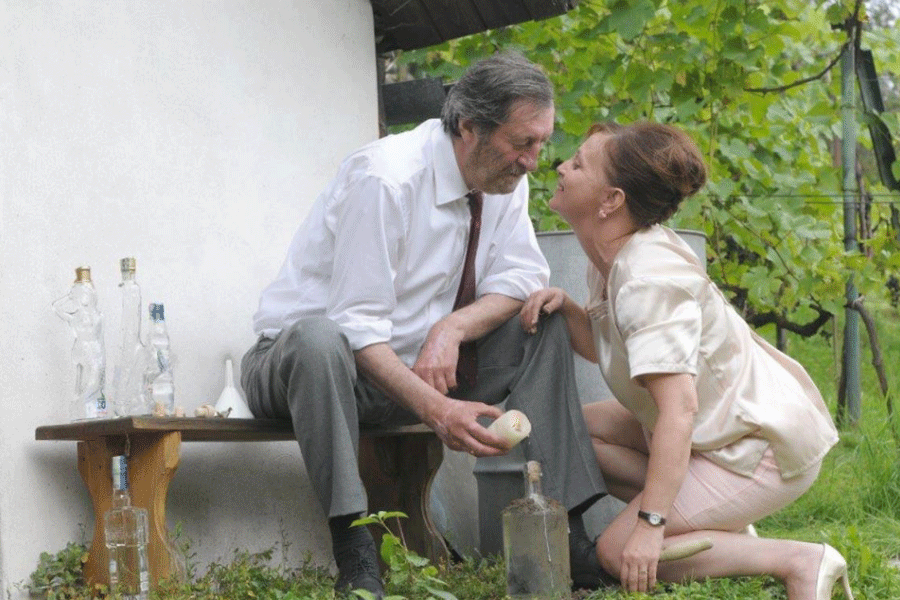 PRODUCTION
PRODUCTION
Twenty eight feature films and 15 long documentaries premiered in the Czech Republic in 2015. Slovakia remains the main coproduction partner, however in recent years the Czech Republic has coproduced with other countries as well, including Poland, Romania, Georgia, Slovenia and even Iran. Some of these coproductions were successful at international film festivals (Aferim!, Family Film, Corn Island, Siska Deluxe, etc).
Among high profile Czech films produced in 2015 were Petr Zelenka’s Lost in Munich (produced by Lucky Man Films), Petr Nikolaev’s comedy Dodgeball (In Film, a coproduction between Czech Republic, Germany, Slovenia, France and Slovakia), Slávek Horák‘s debut feature Home Care (TVORBA Films), Vít Zapletal‘s Dust (Radim Procházka),Jan Prušinovský‘s Snake Brothers (Offside Men) and Milan Cieslar’s box office hit Life is Life (Flamesite).
Anna Foerster‘s Underworld 5, produced by the Prague-based branch of Lakeshore International and Niki Caro’s Zookeeper´s Wife produced by Scion Films with Czech-Anglo Productions as line producer, were among the biggest international productions shot in the Czech Republic in 2015. The local spend of Zookeeper´s Wife was 11.6 m EUR / 314 m CZK.
Other big projects were: a Chinese TV series Last Visa, directed by Quing Hua and produced by Onmijoi Group and Prague-based company Twin Star Film, Unlocked by Michael Apted produced by Bloom with Czech-Anglo Productions and Anthropoid by Sean Ellis, produced by LD Entertainment with Lucky Man Films, which were also supported by the tax incentives programme of the State Cinematography Fund.
DISTRIBUTION
There are 33 distribution companies on the market, but only the top ten have a market share of over 1%. Cinemart, the leading distributor of US films, representing Twentieth Century Fox, Universal and Paramount Pictures,has the biggest share, 29.5%, and the highest number of releases, more than 50 per year.
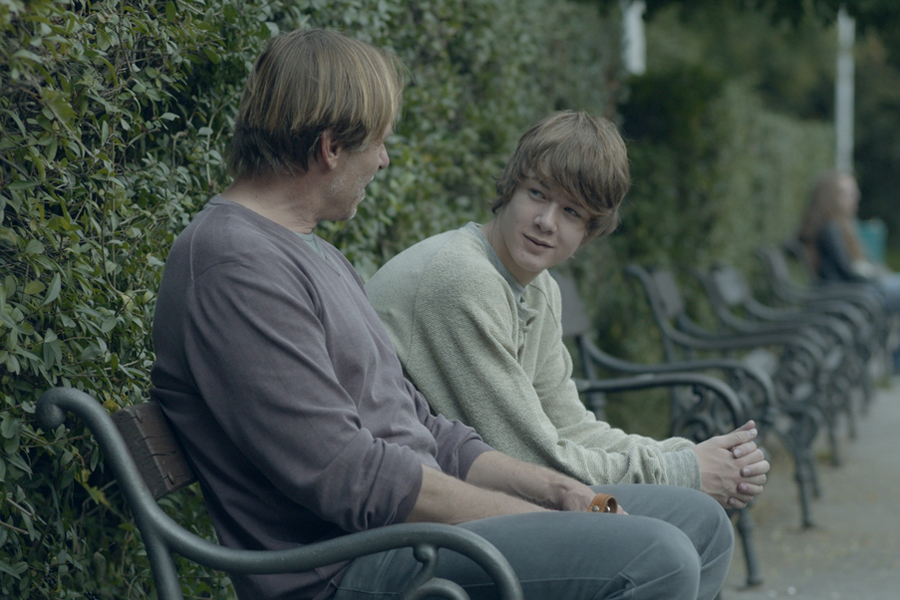 Cinemart is followed by Falcon with 21.3 %. Falcon is the distributor and coproducer of high-profile Czech films, considerably contributing to the high attendance for domestic films in the Czech Republic. Number three in 2014, Warner Bros. Entertainment (16.4%), closed its activities in the Czech Republic and passed its business to Freeman Entertainment (http://www.freeman-ent.cz/klient-84/kino-78/stranka-1963), which also handles the distribution for Lionsgate, Summit Entertainment and DreamWorks.
Cinemart is followed by Falcon with 21.3 %. Falcon is the distributor and coproducer of high-profile Czech films, considerably contributing to the high attendance for domestic films in the Czech Republic. Number three in 2014, Warner Bros. Entertainment (16.4%), closed its activities in the Czech Republic and passed its business to Freeman Entertainment (http://www.freeman-ent.cz/klient-84/kino-78/stranka-1963), which also handles the distribution for Lionsgate, Summit Entertainment and DreamWorks.
With 9.9% Bontonfilm mostly handles domestic and art house titles. Bioscoop/AQS holds the fifth position with 7.1%. Twenty seven cinemas are members of the Europa Cinemas network and are entitled to use the MEDIA programme’s support for distribution of European films.
Some Czech distributors are using day-and-date releases and VOD platforms for European arthouse titles on a regular basis. The most active distributor in this area is Film Distribution Artcam.
EXHIBITION AND BOX OFFICE
For the last three years cinema attendance in the Czech Republic has been quite stable with over 11 m admissions annually and trending toward a slight increase. The average ticket price in Czech cinemas is 4.68 EUR /126, 54 CZK.
The biggest market share, 56%, belongs to US films, while European titles reach a 12% share. Compared to the past, Czech films have been losing the enviable position they used to have on the market and their share has declined to 22%.
Admissions were over 10.2m and box office was over 48 m EUR / 1, 3 billion CZK until the end of October 2015.
Through October 2015 the biggest international hits were Minions with 776,000 attendance and 3, 7 m EUR / 105 m CZK gross, Ridley Scott´s The Martian with 261,000 admissions and 1.5 m EUR / 39 m CZK gross and Hotel Transylvania 2 with 307,500 admissions and 1.35 m EUR / almost 37 m CZK gross.
The most popular Czech films are Gangster-Ka by Jan Pachl (produced by Movie coproduced by Czech TV and distributed by Bioscop) with 770,000 EUR / 21 m CZK gross and 146,000 admissions, and Life Is Life by Milan Cieslar (produced by Flamesite, distributed by Bontonfilm) with 1.1 m EUR / 30 m CZK gross and 230,000 admissions.
There were 269 new releases in Czech cinemas in 2014 of which 32 were Czech feature films and 23 documentaries. The hits of 2014 were the Czech fairy tale The Three Brothers /Tři bratři directed by Jan Svěrák and distributed by Bioscop/AQS with best attendance of 661,378 and 2.7 m EUR / 73,5 m CZK gross, followed by Hobbit: The Battle of the Five Armies (Warner Bros) with 566,700 admissions and 3.2 m EUR / 87 m CZK gross. Number three was How to Train Your Dragon 2 (Cinemart) with 424,000 admissions and 2.1 m EUR / 56 m CZK gross.
Seven Czech films were in the top 20 in terms of admissions in 2014, including the winner Three Brothers, Zdeněk Troška’s Babovřesky (Fenix Film) in the 6th position with almost 246,000 admissions, followed by Jiří Vejdělek’s Tender Waves / Něžné vlny produced by Tomáš Hoffmann with 245,000 admissions, both distributed by Falcon.
Next to the already mentioned Life Is Life and Gangster-Ka, high admissions in 2015 are also expected for: The Snake Brothers (Czech Television, RWE Česká Republika) by Jan Prušinovský, Babovřesky 3 by Zdenek Troska, The Dodgeball (produced by IN Film Praha in coproduction with RWE ) by Petr Nikolaev, Home Care
(Fog’n’Desire Films, Czech Television, Sokol Kollar, HBO Czech Republic) by Slávek Horák, Ghoul ( J.B.J. Films) by Petr Jákl and Seven Ravens (ATTACK Film) by Alice Nellis.
In 2014 admissions were 11,558,586 and box office was 54 m EUR / 1.46 billion CZK. There were 629 cinemas in 2014 with 841 screens of which 463 were digital. There were 250 digital cinemas in 2014.
A total of 30 multiplexes with 229 screens and 41,116 seats were operating in the Czech Republic in 2015. Multiplex theatres´ market share at the box office was 73.95% in 2014. The largest multiplex theatre operator is Cinema City, followed by Cine Star.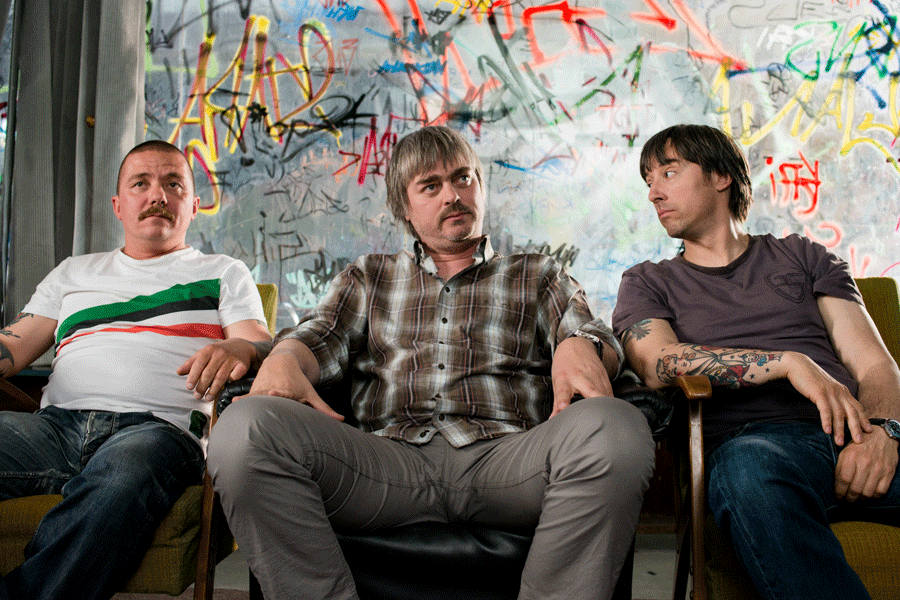
GRANTS AND NEW LEGISLATION
Czech Republic’s State Cinematography Fund has been the main tool for public support for cinematography in the Czech Republic since 1992. After the adoption of the new Cinematography Act in 2013, the Fund became an independent institution with its own director, new financial structure and a Council for assessing and deciding on individual requests for state support.
The funding is granted in accordance with the new law, supporting development, production, distribution, promotion, technological development, publications, education and training, festivals and events, protection, preservation and access to film heritage.
In 2015, the State Cinematography Fund issued a total of 29 calls for domestic grants. The total budget of the fund in 2015 was 8.14 m EUR / 220 m CZK (740,080 EUR /20 m CZK more than in 2014) with 5.55 m EUR / 150m CZK earmarked for Czech film production of all genres and 610,566 EUR / 16.5m CZK for film development. The Fund announces calls for subsidies for minority coproductions twice a year with an allocation of 1,036,112 EUR / 28m CZK.
Among the feature films supported in 2015 were: Vaclav Kadrnka’s Little Crusader / Křižáček produced by Sirius Films with 346,778 EUR / 9.5 m CZK, Jan Švankmajer‘s Insect / Hmyz produced by Athanor with 365,000 EUR / 10 m CZK and Bohdan Sláma’s The Ice Crone / Bába z ledu produced by Negativ with 237,269 EUR / 6.5 m CZK.
Since the introduction of the new law in 2013, the State Cinematography Fund has also administered the Czech incentives scheme, which has been effective since 2010. The incentives are granted in the form of a 20% cash rebate on Czech production costs and 10% of nonresident labour costs that are subject to Czech withholding tax. The incentives are available for feature films, TV series, animation and documentary films. Rebates are issued at the end of production in the Czech Republic upon submission of audited statements of costs incurred and paid out in the form of cash grants.
In 2016 and 2017 an improved incentives scheme will be gradually introduced as the Czech government implements some important changes which will make the system more flexible for film productions. The rebate will no longer be subject to a yearly cap. Producers will be able to register at any time during the year and immediately receive a registration certificate that guarantees payment of the rebate upon fulfillment of all conditions. Rebates will be allocated throughout the year, depending on the beginning of production, and producers will be able to receive their grants in two parts, first upon completion of filming in the Czech Republic and the second part after the completion of all Czech production.
The State Cinematography Fund has allotted approximately 47 m EUR for 71 film and television projects shooting in the Czech Republic in 2015-2016. Large amounts of incentives were allotted in 2015: 4. 3 m EUR / 118 m CZK for Underworld 5 (Lakeshore International), 2.9 m EUR / 80 m CZK for Crossing Lines III (Film United) and 2.3 m EUR /62 m CZK for The Musketeers series III (Czech-Anglo Productions).
The National Film Archive handles both domestic and international sales of films made in Czechoslovakia before 1991 and produced by Barrandov and Zlin film studios (both state owned at the time). Czech Film Center is in charge of the promotion of Czech films abroad and it is the official national representative of Czech cinema and film industry at key film festivals and markets. Czech Film Commission is the official film office supporting and promoting audiovisual production in the Czech Republic. Together with Creative Europe – MEDIA Czech Republic, they are since 2013 a part of the National Film Archive.
TV
There are four major TV groups in the Czech Republic: public TV Czech Television with 29.43% market share, privately owned NOVA group with 27.83%, Prima group with 23.72% and Barrandov TV with 5.8%.
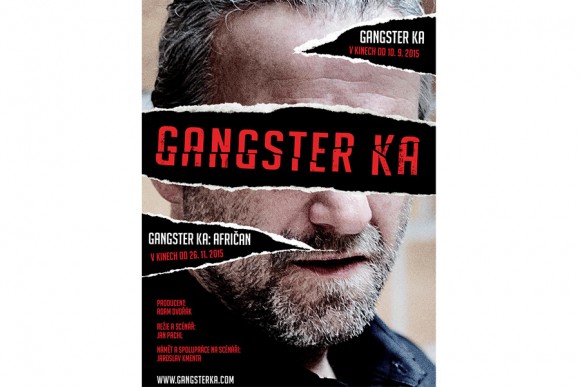 Companies are introducing new channels in order to compensate for the declining audience of flagship stations. Czech Television currently runs six channels: CT1, CT2, CT24, CT sport, CT:D and CT Art. NOVA group channels include NOVA, NOVA Cinema, Fanda TV, Smichov TV, Telka TV, NOVA Sport and NOVA Sport 2. Prima group consists of Prima Family, Prima COOL, Prima LOVE, Prima ZOOM, new channel Prima MAX, and is also planning to launch Prima Comedy Central.
Companies are introducing new channels in order to compensate for the declining audience of flagship stations. Czech Television currently runs six channels: CT1, CT2, CT24, CT sport, CT:D and CT Art. NOVA group channels include NOVA, NOVA Cinema, Fanda TV, Smichov TV, Telka TV, NOVA Sport and NOVA Sport 2. Prima group consists of Prima Family, Prima COOL, Prima LOVE, Prima ZOOM, new channel Prima MAX, and is also planning to launch Prima Comedy Central.
TV stations also increased the number of programmes available on the internet, bringing them to a larger audience. TV NOVA has its video library Voyo.cz, Prima group runs PrimaPlay.cz , while the Czech TV offers its programmes via iVysílání.cz.
The market for TV advertising is dominated by Nova and Prima, while advertising on Czech Television is limited by the law to a minimum. Television is traditionally the strongest advertising medium in the country.
Television stations play a large role in the production of quality content for local film and TV. Czech TV has become a permanent partner of Czech filmmaking, with its in-house production sector Film Center coproducing many feature films, including Lost in Munich produced by Lucky Man Films, Home Care by Slávek Horák or Journey to Rome by Tomasz Mielnik (Background Films).
Czech TV is also the coproducer of almost all documentaries released in cinemas. Among the most interesting titles of 2015 are Helena Třeštíková’s Mallory (Negativ) and Andrea Sedláčková’s Life according to Vaclav Havel (a coproduction between Czech TV, ARTE and Negativ).
HBO Europe also coproduces Czech documentaries and produces its own drama series in co-operation with local production companies and filmmakers. In 2014 HBO broadcast its successful original series Over the Head and Ears directed by Jan Hřebejk and an original crime series Mamon directed by Vladimír Michálek in 2015.
CONTACTS:
State Cinematography Fund
Veletržní palác, Dukelských hrdinů 47, 170 00 Prague 7
TEL:+420 224 301 278
This email address is being protected from spambots. You need JavaScript enabled to view it.
www.fondkinematografie.cz
National Film Archive
Malešická 12, 130 00 Prague 3
PHONE: +420 778 522 729
This email address is being protected from spambots. You need JavaScript enabled to view it.
www.nfa.cz
APA- Audiovisual Producers’ Association
Národní 28, 110 00 Prague 1
PHONE: +420 603 844 811
This email address is being protected from spambots. You need JavaScript enabled to view it.
www.asociaceproducentu.cz
Creative Europe – MEDIA Czech Republic
Národní 28, 110 00 Prague 1
PHONE: +420 221 105 209
FAX: +420 221 105 303
This email address is being protected from spambots. You need JavaScript enabled to view it.
www.mediadeskcz.eu
Czech Film and Television Academy
Karlovo nám 285/19, 120 00 Prague 2
info@cfta.cz
www.cfta.cz
Czech Film Center
Národní 28, 110 00 Prague 1
PHONE: +420 221 105 303
This email address is being protected from spambots. You need JavaScript enabled to view it.
www.filmcenter.cz
Czech Film Commission
Národní 28, 110 00 Prague 1
PHONE: 420 778 543 290
This email address is being protected from spambots. You need JavaScript enabled to view it.
www.filmcommission.cz
Institute of Documentary Film
Štěpánská 611/14, 110 00 Praha 1
PHONE: +420 224 214 858
FAX: +420 224 214 858
This email address is being protected from spambots. You need JavaScript enabled to view it.
www.dokweb.net
FITES – Czech Film and Television Union
Pod Nuselskými schody 3, 120 00 Prague 2
This email address is being protected from spambots. You need JavaScript enabled to view it.
www.fites.cz
Film Distributors’ Union
nám. Winstona Churchilla 2, 130 00 Prague 3
This email address is being protected from spambots. You need JavaScript enabled to view it., www.ufd.cz

